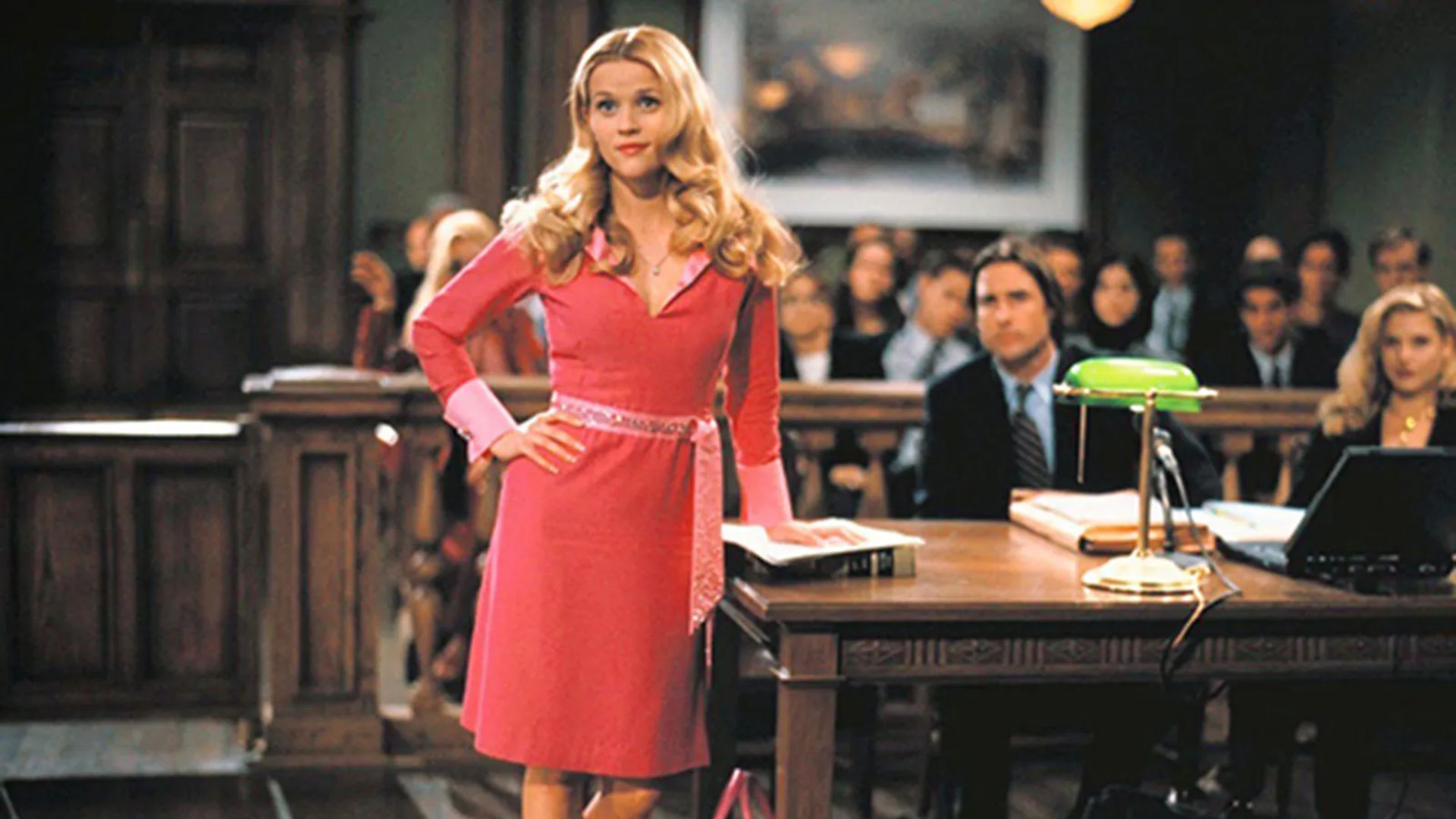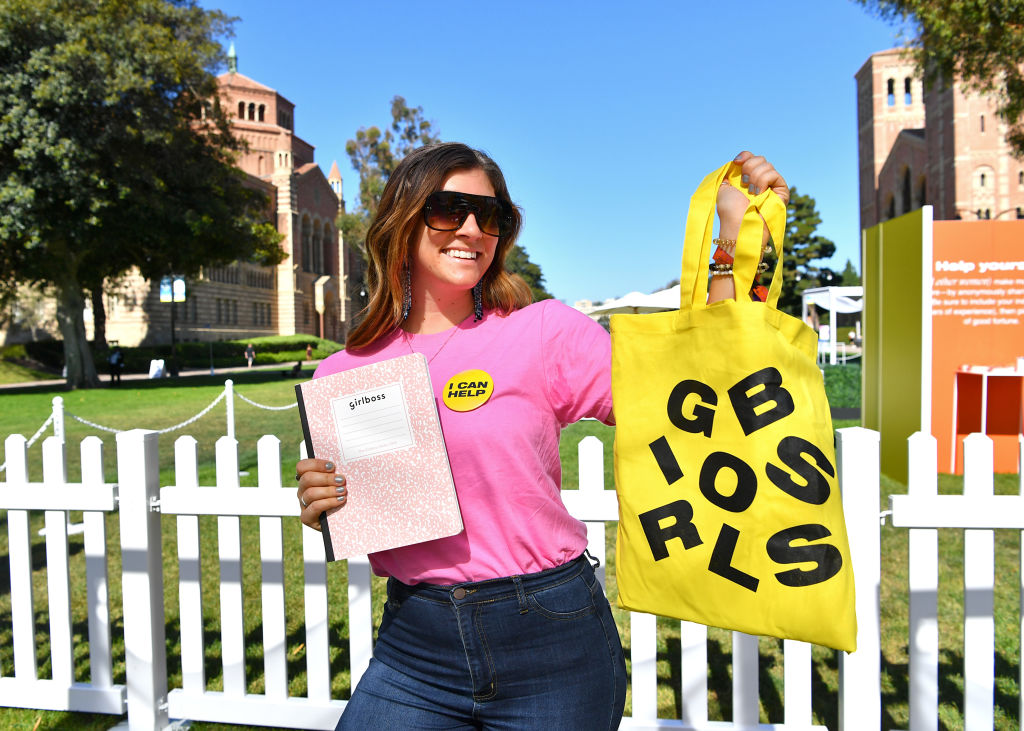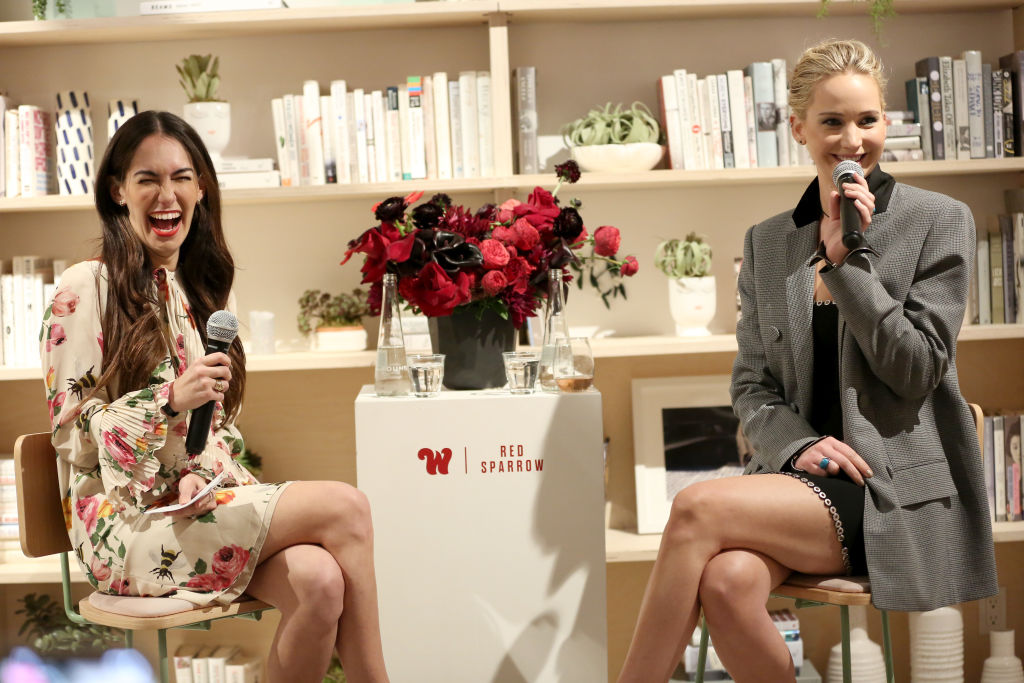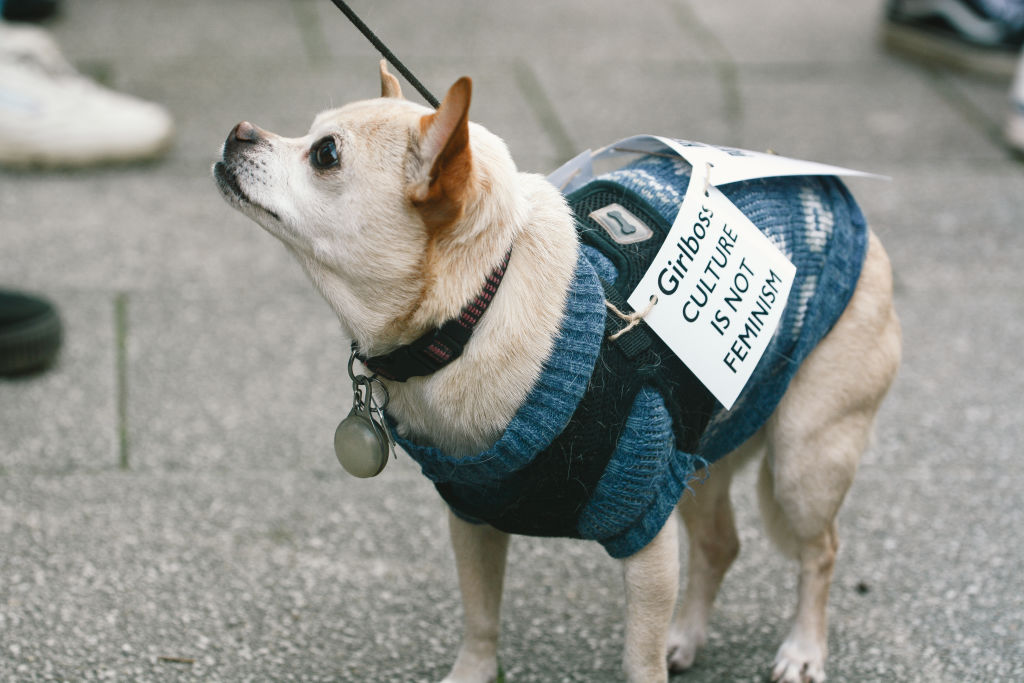These days, the title “girlboss” is pretty much relegated to an ironic inside joke between the masses of women who get it (and aren’t in an MLM). Girlboss, gaslight, gatekeep is one such snarky tagline that pays flippant homage to the unforgettable late 2010s era when the word unironically reigned supreme. At the time, Nasty Gal founder Sophia Amoruso had transformed the label from a mere hashtag in 2014 to a best-selling book title and an entire soft glam lifestyle in a matter of years. Living like a #girlboss (essentially, building your own business and looking perfectly poised in millennial pink while doing it) was a serious life goal for women everywhere, co-signed in glittery cursive font by the mainstream media.
As Noël Wolf, expert linguist at Babbel, describes it to me, “If we think of the 2000s and 2010 scene, it was like this whole era where women thrived [on being] perfect.” It was a lifestyle MO also reflected in strict “body culture,” where “everyone was [expected to be] really thin…and body positivity didn’t really exist.”
Nasty Gal’s sassy SHE-E-O scene, brought to life in girl power spaces like The Wing, was a natural evolution from Sheryl Sandberg’s more sterile self-help movement, laid out in Lean In. Sandberg had famously advised aspiring female industry titans to grit their teeth and bear it if they wanted to stand a chance against the boys. #Girlbosses doused that bootstrap mentality in glossy pink glitter. But even though this self-centered, self-help talk still sometimes strikes a chord (#letthem), why did the title girlboss downgrade from a card-carrying movement to a punchline?
I spoke with Wolf about how hyper-feminized self-identifying language has devolved from ~boss babe~ to the lazy girl language rampant on TikTok (without using any girl math).
Defining The Girl Boss Era
Nasty Gal may have catapulted the moniker to the mainstream, but being a girlboss had a very specific meaning from day one. “I mean, the nature of the word ‘boss’ is obvious, right? It’s someone who has power,” Wolf tells me. More than that, she notes, “It also gives you a little bit of a wind of intimidation. Your boss is always intimidating. So, girl boss, they bring this kind of harsh, linguistic semantic meaning to it.” Long story short: being a girlboss isn’t a casual position. It’s a serious commitment to fucking up the patriarchy — with glitter, of course!
This lifestyle “goes hand in hand, as we wanted to be this perfect person.” Being a girlboss was synonymous with being flawless. In hindsight, is it that surprising that women taking on the typically masculine boss attitude (“Hey, boss!”) had to be grounded in hyperfemininity? It made the move far more palatable to the patriarchy and women’s own inherent bias. A woman couldn’t just build a business as a female entrepreneur to make money; she had to be fostering a pretty pink platform that served the great girliepop cause, and her own nuclear family, for as Wolf summarizes, “the whole culture in those years,” put “a lot of pressure, in pop culture and fashion, and then obviously in the workplace as well,” on women to be more than successful, but to be perfect.
Girl World’s Internet Explosion
So, why did the massive C-suite slumber party come to an end after 2017? “In addition to body positivity, individualism lost its charm, in part thanks to Covid,” Wolf tells me. The idea of elbowing others to the top, at least for women, fell out of style after a global crisis. “So it’s not just me as an individual woman [who has to] thrive to be great, but rather me as a community of women. I want us to thrive to be great.” The sentiment wasn’t very SHE-E-O, but it quickly gained momentum thanks to an increase in social media. Social media use increased by 20% globally, with a significant number of people citing that their primary reason for scrolling was not only to stay in touch with friends and family but also to be part of a like-minded community with shared beliefs.
“If we have social media, where we see other people are maybe struggling with the same things [and] living the same life as us, we feel more connected, and then this community gets built,” says Wolf. TikTok’s viral trends, especially, taught those communities a common language at lightning speed. “I think TikTok is influencing how we act and talk,” Wolf agreed with my proud but potentially problematic ability to speak entire sentences in TikTok sounds. “Especially obviously Gen Z and younger [generations].”
Wolf sees firsthand as an individual (and a professional language expert, duh) how “American TikTok language, like English words,” has made its way abroad and vice versa. Thanks to social media, “a global language” is mobilizing “the whole world.” By speaking the same words and consuming the same media, it feels like “we are living the same life,” Wolf explains. And the more we feel connected, the more we accept each other.
“Millennials already accepted what previous generations found taboo,” though there was still an expectation to hit certain stereotypical milestones. Gen Z’s approach to moving the needle is “more direct,” Wolf describes. “They are standing up to what they think is right to say that, as in they’re not just doing whatever they’re told to do,” Wolf continues, even if that means tripling down on objectively unhinged out-of-office replies.
From Girl Boss to Just A Girl: How did boss babe change to baby talk?
Being more online = more community, and more community = more relatability and acceptance. Rejecting old norms led to discarding hard girlboss boundaries, much like a bad boyfriend, for a softer life. The ladies’ language quickly followed suit. Why force ourselves to rise and grind to become a whole-ass boss when instead you could be just a girl? Crashing out or using girl math became a much more fun alternative to getting down to brass tax.
So “a lazy girl job” or a “hot girl walk” feels like an activity we all can do instead of a solo mission to the top. This lingo “gives you a proximity to the term and to the person who is using it,” Wolf says, likening it to one big “girls’ girl” family. Once you hear a word like girl math, every time you repeat it, the concept grows on you.”It’s not like, okay, I’m buying a lot more things,” Wolf explains, but the heart of the phrase (that it’s okay to do something nice for yourself even if it’s not the most responsible choice) influences your thought. The next time you make a risky purchase or cancel an item on your to-do list, the comfort and community of girl math normalizes your choice.
On TikTok, a snack plate is “girl dinner,” male incompetence is “boy math,” and mental breakdowns are “menty b’s”. Why the cute code language instead of saying how it is?
“Whenever we, let’s say, sweeten something, it gives us distance from that term [and the] negative connotations it has to some people.” Softening the language instead of being direct can help taboo subjects find their way into the mainstream. At the same time, “covering up” the meaning could be a distraction from going deeper.
Is there a benefit to “Just A Girl” language?
Wolf thinks the language of “Just A Girl” is generally positive because “we are creating this community, which is really important.” Wolf grew up buying magazines and considering the models on the cover to be, well, that bitch. “Now I see videos of people who are like me or who are different [from me]. They are accepted, and I look up to them, so all of this brings us together.” This linguistic shift says, “Hey, it’s okay how you are. It’s okay that you’re not always perfect or always productive.”
At the same time, relinquishing the bossy-to-boardroom pipeline could have its setbacks too. If we abandon female entrepreneurship entirely, “we go a little bit backwards because I mean, we fought for this. We can do the same things men can. We can have the same productivity, same intelligence, et cetera. So let’s not go too far backwards.”
So, how do we make Demi Moore proud and respect the balance? Wolf believes there will be a significant shift toward niche feminist subgroups that will gain mainstream recognition thanks to TikTok and social media. Even more representation, acceptance, and inside jokes for every type of woman? IKTR. “That’s my hope. I don’t want to predict something bad, so to stay positive here.”
I’m just a girl, but I have to agree!
























































